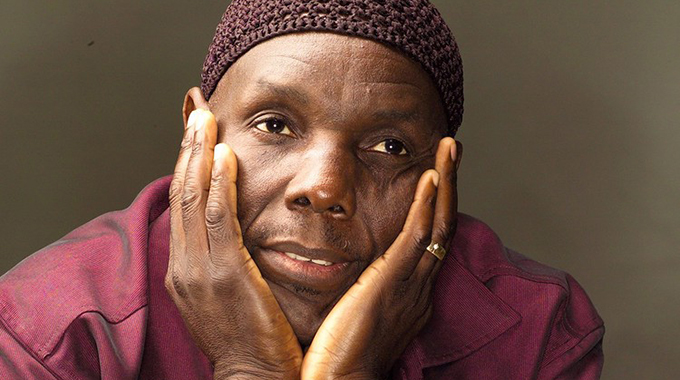Gender-based violence in any form is never acceptable

Features Correspondent
The Judicial Service Commission (JSC) updated and launched the revised Protocol on the Multi-Sectoral Management of Sexual Abuse and Violence in Zimbabwe in November last year.
The protocol is a toolkit developed to give guidance to stakeholders in the referral pathway when handling sexual abuse.
It also stipulates the minimum care package required by survivors of sexual violence.
The protocol seeks to safeguard the rights of survivors of sexual gender-based violence (SGBV) and abuse, guaranteeing that they receive a holistic package of age and gender sensitive, survivor-centred services for their psychosocial well-being and protection by the welfare and justice systems.
It also focuses on providing a standard set of age and gender-sensitive procedures that must be undertaken to ensure this holistic response to survivors (SGBV).
Its other aim is to strengthen and clarify the roles and responsibilities between service providers and agencies that have legal and thus obligatory responsibilities in the delivery of age and gender sensitive, survivor-centred services, thereby enhancing their accountability and credibility (Multi-sectoral Protocol on the Management of Sexual Abuse and Violence in Zimbabwe, 2019).
Sexual gender-based violence is one of the nagging societal issues in Zimbabwe.
The health implications of GBV are overwhelming.
It has been estimated that at least one in every three women around the world has been beaten, coerced in to sex, or otherwise abused in her lifetime. Violence is also a more serious cause of death and incapacity among women of reproductive age than cancer, and greater cause of ill-health than traffic accidents and malaria combined.
It is mandatory to report all cases of sexual and gender-based violence against children.
While it is essential for all cases of child sexual abuse to be reported to the police, a police report is not a prerequisite for being attended to by a medical practitioner.
Medical attention should be received within 72 hours or three days of the occurrence of the incident.
A child must receive all the medical care and psychosocial support at the first point of call within the health system.
The following are the general guidelines for the health sector.
- Emergency interventions for survivors of sexual violence are free of charge.
- The Accident and Emergency Department is the standard point of call for the survivor, however, for children, services can also be obtained in the paediatric/ children’s hospital.
- Only a doctor or a registered nurse with the relevant training can carry out the forensic examination on the child survivor and complete the medical affidavit form. Upon receiving the survivor, immediate medical care and support should be given to the child survivor.
In cases of children, it is important to ensure that all the relevant information is availed to the parent or guardian so as to allow them to provide the necessary informed consent.
However, where it is not possible to obtain consent, a registered medical officer can direct the parents or guardians to consent to the medical examination.
In the event that the parents or guardians fail to comply, the health worker in charge of the health institution can refer the matter to the Magistrates’ Court.
- Health workers must always avail child survivors the minimum care package — that is medical care and psychosocial support.
Emergency medical care should be availed within 72 hours or three days for Post Exposure Prophylaxis (PEP) for prevention of HIV and sexually transmitted infections, and emergency contraception. Emergency contraception can be administered up to five days of the incidence. - All cases should be reported to a probation officer before the child leaves the medical facility to enable the probation officer to carry out a home assessment.
- Efforts must be made to limit the number of times the child narrates the ordeal.
- The health worker is responsible for ensuring that in the case of a child survivor, the parents or guardian are made aware of all available medical options regarding termination of pregnancy and that the survivor is linked to all the relevant service providers, including social workers and referred for legal assistance.
The forensic department also plays a huge role in relation to the collection, management and analysis of evidence that is used to collaborate survivor’s testimonies.
The Department of Forensic Science is mandated to provide impartial, independent, objective and non-biased forensic evidence through collecting and scientifically analysing evidence so as to prove or disprove physical contact between individuals.
In sexual crimes biological trace evidence and other material may link survivor to the perpetrator or both to a particular location, this evidence will then be used in the courts with the survivor’s testimony.
Forensic evidence is particularly useful in cases where children have been sexually abused and may be too young to fully comprehend what has happened to them or not in a position to identify the perpetrator.
Forensic evidence is used to:
- Establish the identity of persons associated with a crime.
- Show the manner in which the crime was committed, for example proving the use of force in sexual and gender-based violence.
- Provide scientist information and leads for further investigation in SGBV cases.
- Present expert evidence in the courts to corroborate the survivor’s testimony or to exonerate the innocent.
- Ensure the preservation and integrity of forensic evidence from the crime scene to the courtroom to ensure its validity and effectiveness in the justice delivery system.
Having an understanding of the functions of the forensic department is important as in some instances where specimen is not collected and preserved properly, compromises the evidence. Collection and analysis of evidence is important in a criminal investigation, it can be the only critical link to tie a perpetrator to a crime or crime scene.
This article was prepared by Justice for Children (JCT). The article aims to educate and inform the populace on the Protocol on the Multi-Sectoral Management of Sexual Abuse and Violence in Zimbabwe, through popularising how survivor of sexual abuse and violence can use the protocol as they seek protection.









Comments